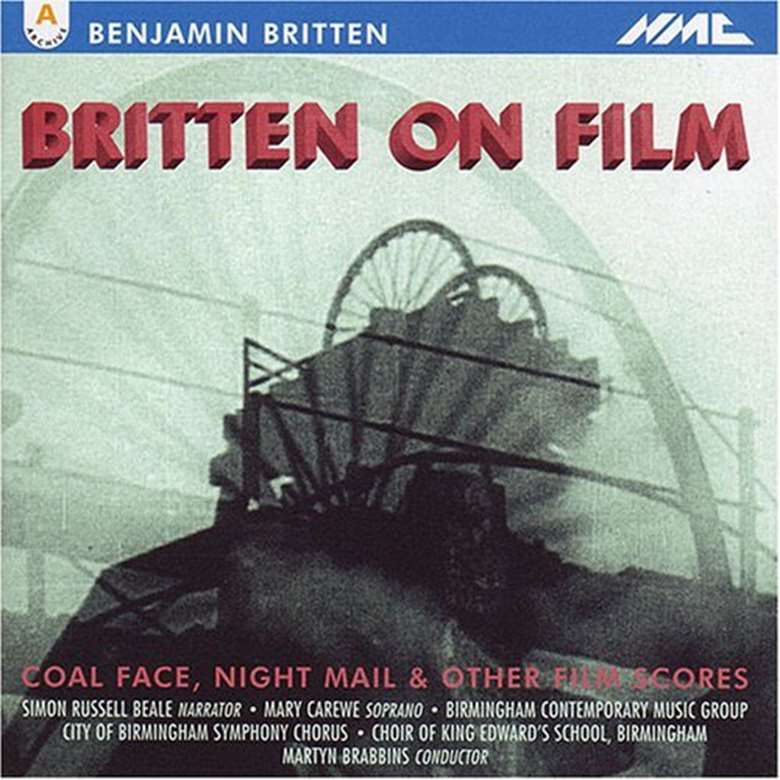Britten's Film Music
James McCarthy
Friday, October 5, 2012

The Gramophone Choice
‘Britten on Film’
Britten When you’re feeling like expressing your affection. Night Mail. Way to the Sea. The Tocher (Rossini Suite). The King’s Stamp. Negroes. Telegrams. Peace of Britain. Men Behind the Meters. Coal Face
Mary Carewe sop Daniel Auchincloss ten Adam Green bar Simon Russell Beale narr Malcolm Wilson pf City of Birmingham Symphony Orchestra Chorus; Choir of King Edward’s School, Birmingham; Birmingham Contemporary Music Group / Martyn Brabbins
NMC NMCD112 (79’ · DDD · T) Buy from Amazon
In the mid-1930s, in his early twenties, Britten wrote film scores, giving him an unrivalled opportunity to hear his own music immediately after it had been composed. He learnt to apply his imagination to visual effects and drama – this was the genesis of the great opera composer. His colleagues included WH Auden, intimidatingly erudite and sometimes bullying, who was a formative influence on Britten at this impressionable period.
This generous 79-minute collection consists of the film music without the film, so if you have once seen some of the better known ones such as Night Mail or Coal Face your visual memory fills the gap. An excellent feature is the provision of Auden’s texts as well as thorough documentary material from Philip Reed.
There are familiar elements in The Tocher (Rossini Suite), which overlaps with Britten’s Soirées musicales based on Rossini, and it’s odd to find Britten arranging Balfe’s ‘I dreamt I dwelt in marble halls’ in a film about the gas industry. Surprisingly often the musical ideas are strong enough on their own but some extracts such as The King’s Stamp (commemorating the George V Silver Jubilee issue of 1935) consist of bits and pieces that weren’t meant to cohere and don’t. Simon Russell Beale is the narrator and his rather low-pitched voice is sometimes drowned by the instruments: he also drops his voice at the end of sentences. The track-listing has gone awry at the start of The Negroes, which begins with a passage very close to Kurt Weill. But most of this material is well worth having at least for its pre-echoes and is admirably performed.











